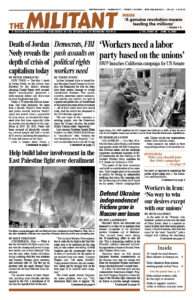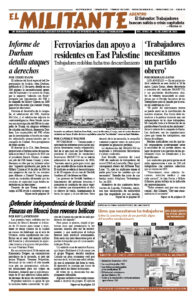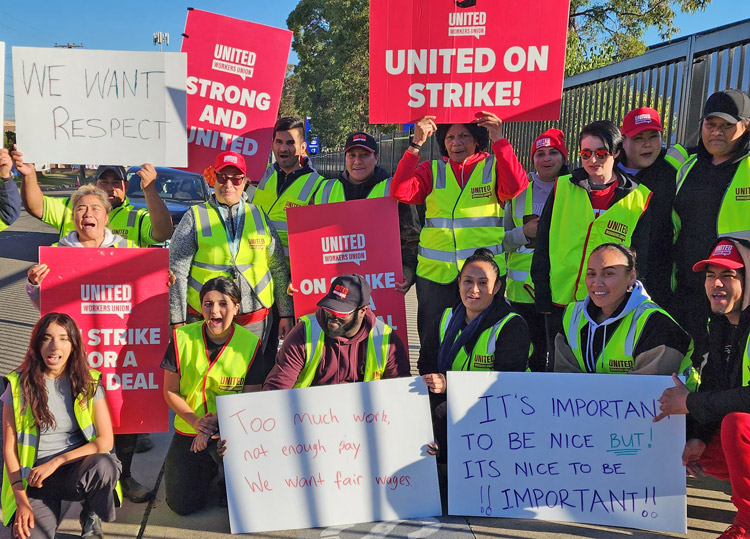SYDNEY — “We are striking for more wages,” said Joe Matthews on the picket line outside the Onelink distribution center here May 23. “All we want is a fair go.” United Workers Union members at the warehouse first walked out May 15 and have held a series of 24-hour strikes.
“Look at expenses with inflation. Expenses are getting so high and people are struggling,” he added. “We’re low income. We need to keep up in these testing times.”
After five days of strike action the unionists returned to work May 24. They won a 7% wage increase for the first year, 3% for two subsequent years and improvements in severance pay.
Onelink is one of a number of companies owned by EBOS Group. Some 80 workers are employed at its large warehouse here. A UWU media release points out at other EBOS sites “workers were paid $4 to $7 an hour more than the Onelink workers. In the meantime, EBOS recorded a profit of almost $150 million in 2022.”
Onelink’s main contract is to supply gloves, masks and other medical goods to public hospitals. “The government pays EBOS to distribute to hospitals,” said Matthews. It made 150 million Australian dollars ($98 million) profit “at the taxpayers’ expense. They get all the profits and we get no appreciation.”
Adrian Mares, another striking worker, pointed to how the company had chained up the front gate beside the picket. “As though we’d go in and sabotage it!” he exclaimed. “They’re disrespectful. They treat us like second-class citizens.”
The workers were also striking for more severance pay. Matthews said the government contract “will run out in two years and we don’t know if we will have a job after that.”
“Workers join the union because of the unity and support they can get,” he said.


